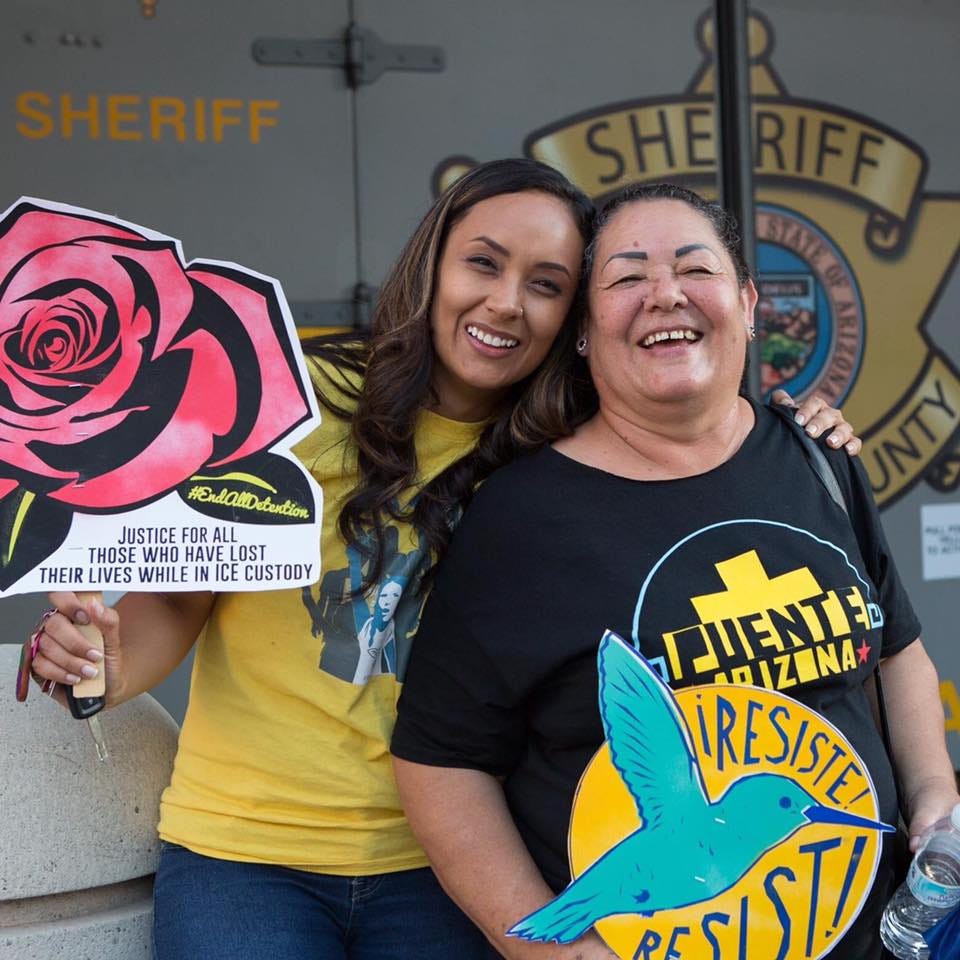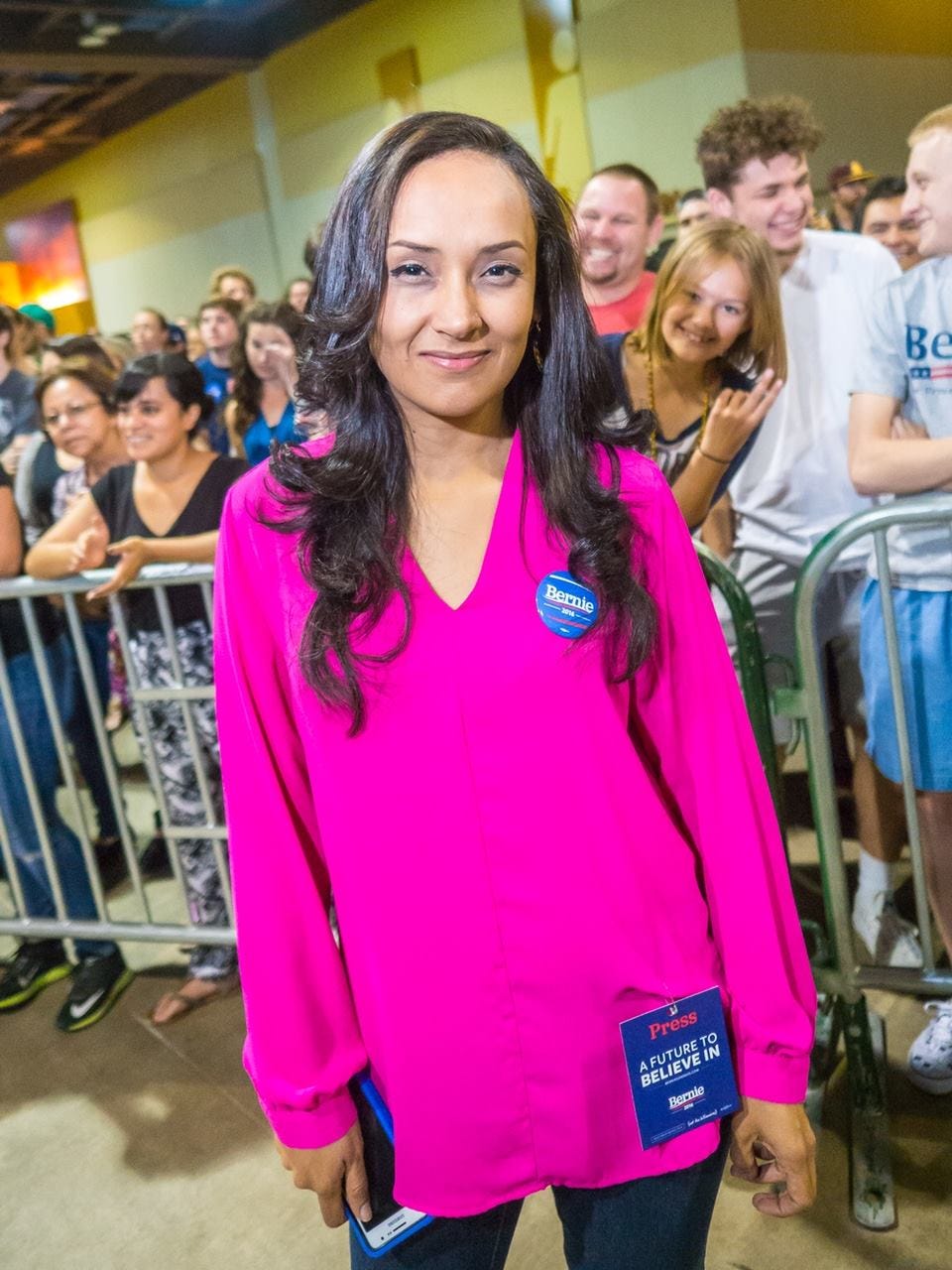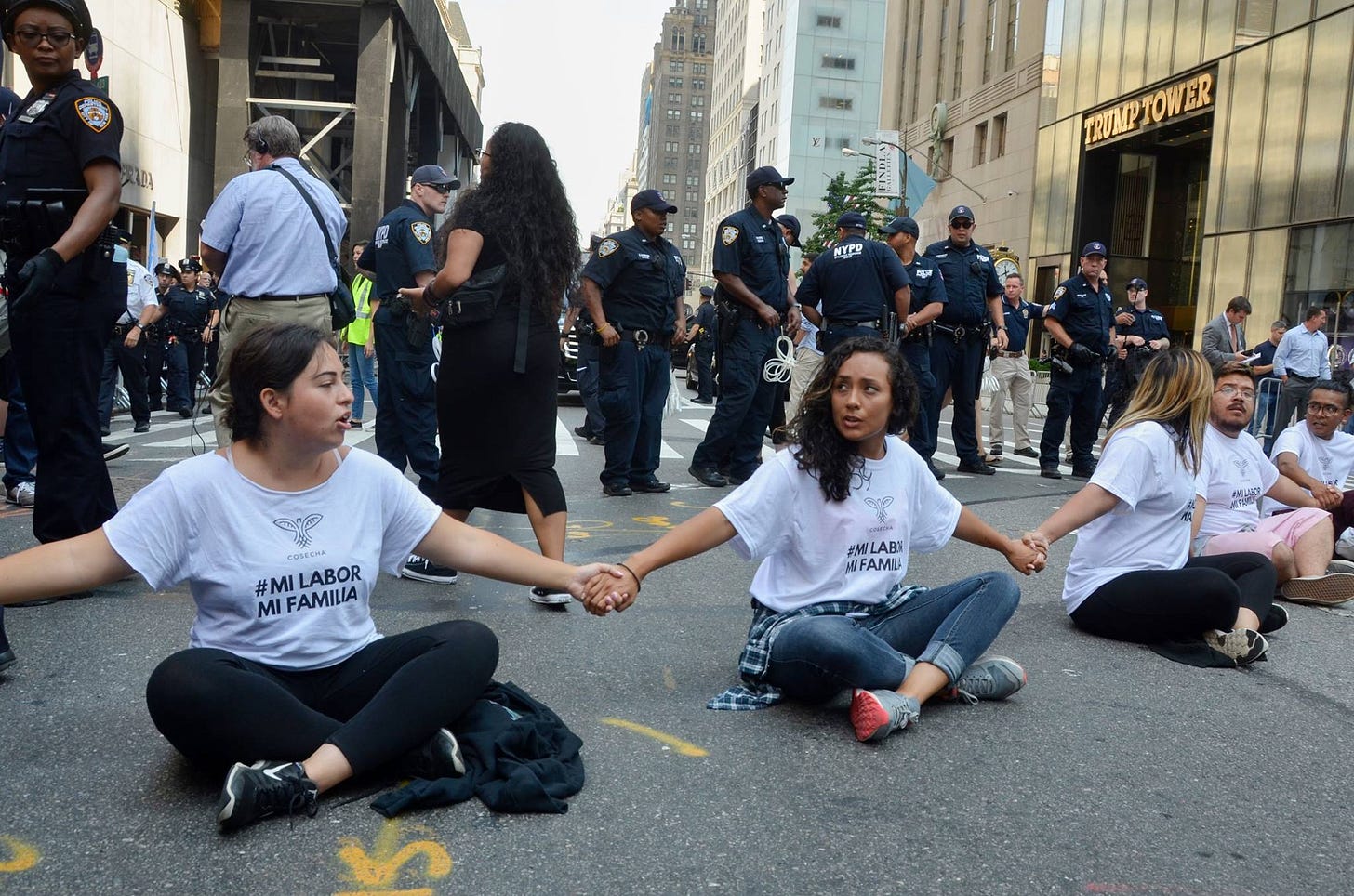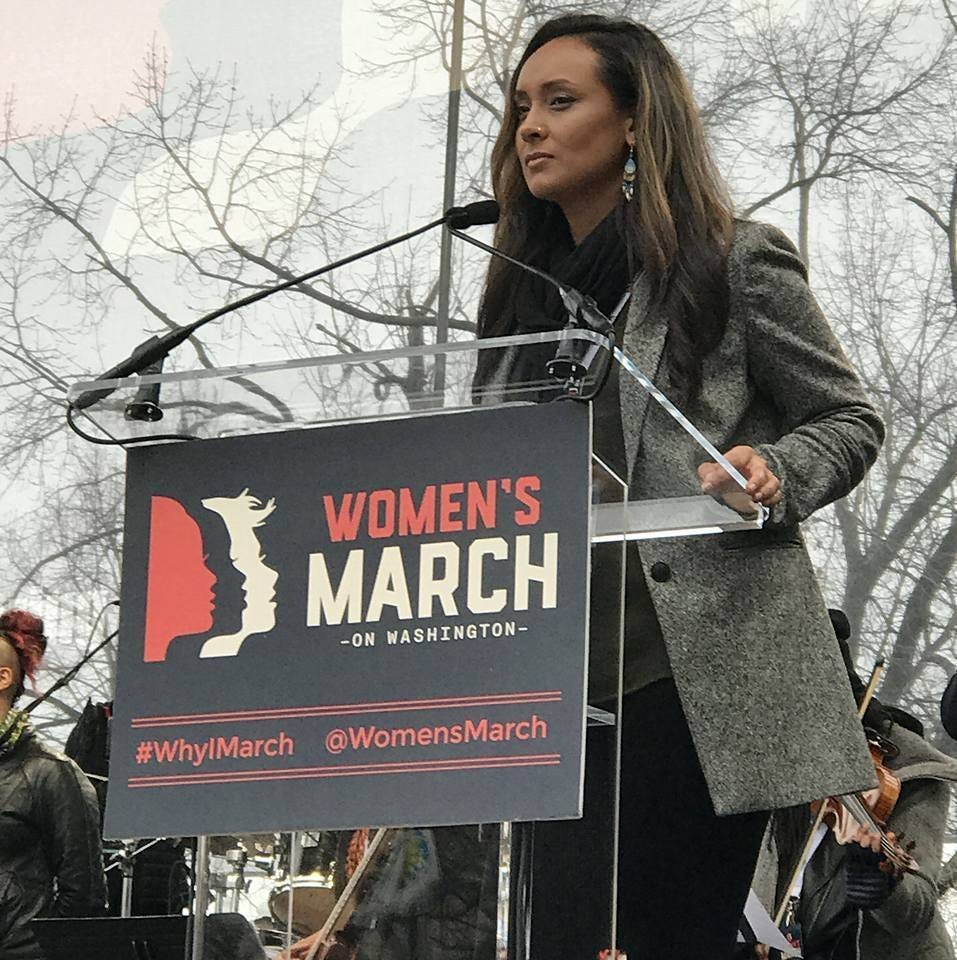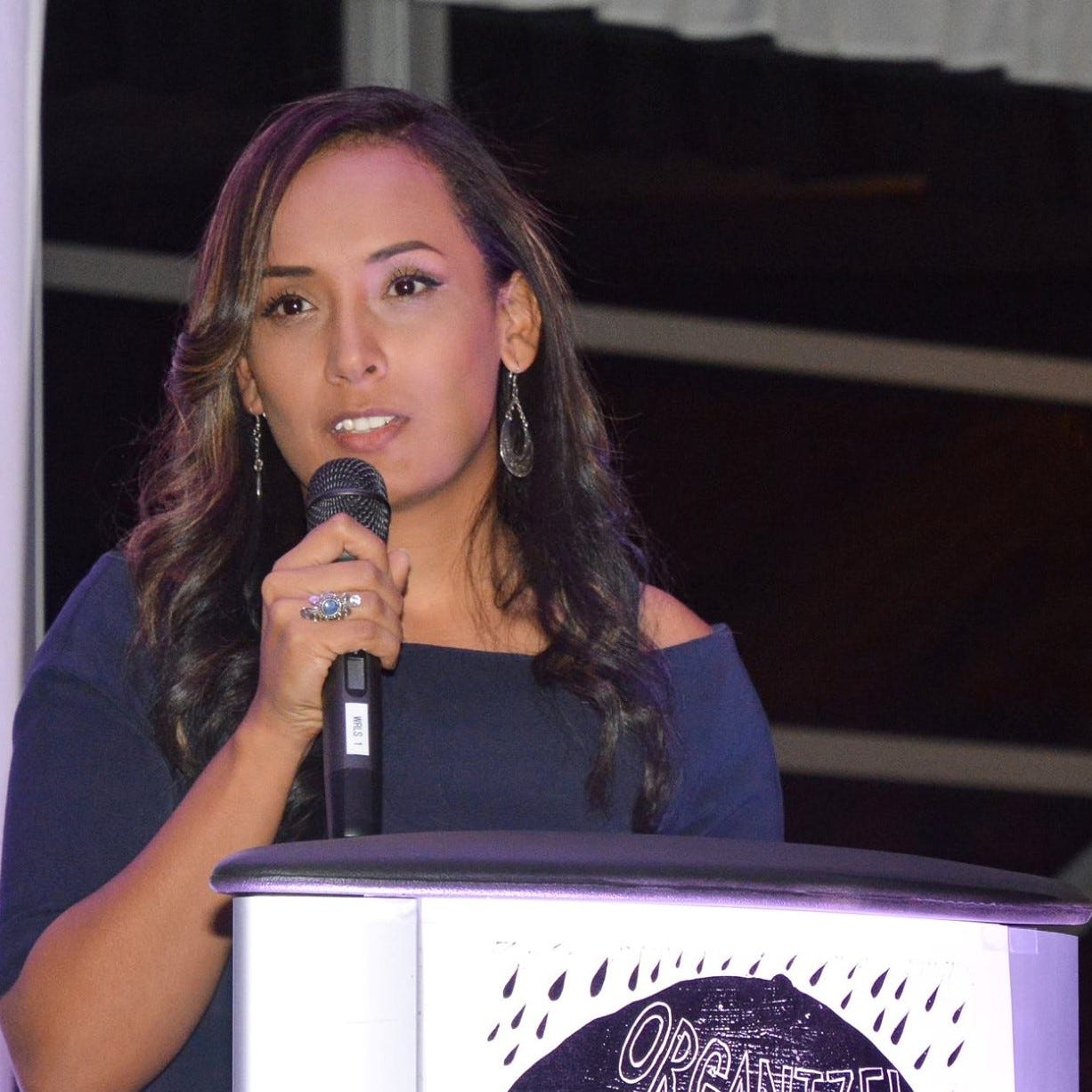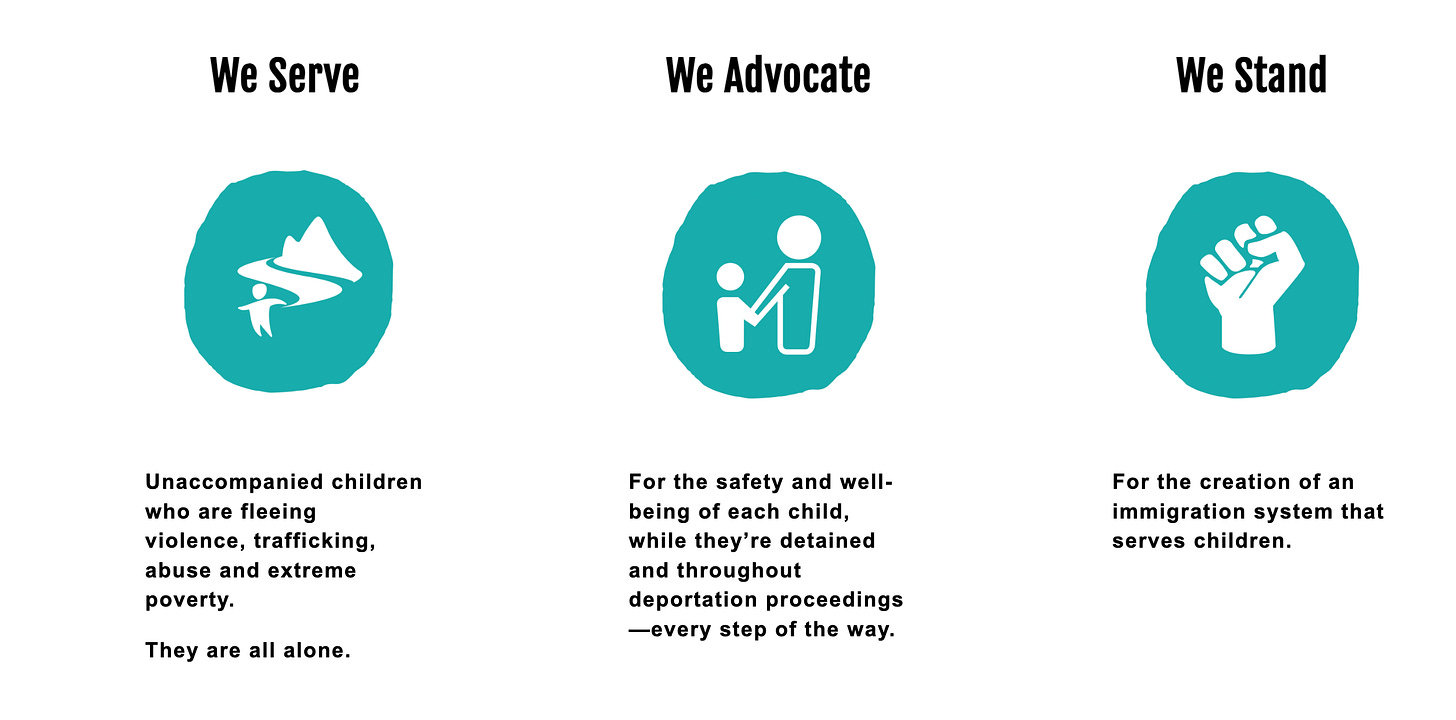“That's why I'm here: I see myself in the kids that we work with.”
Erika Andiola reflects on her work as an activist, organizer, immigrant, and human being
Over the past two weeks, Erika Andiola has shared the powerful work of the Young Center as it supports the rights of immigrant children in the US (if you missed these first installments, you can find them here and here). This week, we dive into Erika’s personal motivations as an activist, a leader, and an individual that is “not asking for pity, I'm asking for solidarity.”
ANTERO GARCIA: I’m curious how you got involved with the Young Center as well as why immigration is something that you are so passionate about.
ERIKA ANDIOLA: It's actually the same answer for both questions: It's my own experience. I was a young person who migrated to this country when I was 11, and I was completely undocumented for years up until I was able to get DACA in 2012. Basically, my journey as an organizer, which is what I first started working as, was in college in Arizona. I'd been living in Arizona since I moved to the US. Around 2010, Arizona became one of the most anti-immigrant states.
AG: I think you and [professor and former La Cuenta interviewee] Silvia Rodriguez Vega connected, right?
EA: Yeah, Silvia's a great friend. We graduated from the same college and were part of the same organization.
AG: That’s so cool.
EA: It was the first undocumented-led organization--we started it when I was in college at Arizona State University. And that was because Arizona passed a law that basically said that undocumented youth couldn't receive in-state tuition anymore. And so, while I was in college, a lot of us got the same scholarship that helped undocumented students finish college.
It was amazing--because it started first with just a scholarship, and then eventually they got us together to do community service and do those kinds of things that scholarships make you do. And so we ended up getting to know each other as undocumented young people, and then we formed an organization called the Arizona Dream Act Coalition, and that's where it all started. From there, I started getting very involved in the immigrants' rights movement, with the same goals in mind for me: being able to get a pathway to citizenship for undocumented young people and for our families. I got involved in different groups. I worked for Congress. I was one of the first undocumented folks to work for congress with DACA. And then I went on to work for the Bernie campaign, helped to write his immigration platform.
It's always been different vehicles, different ways of trying to get to the same goal of changing the immigration system for myself, for my family, and for people that have experienced the same challenges that I have. That's why I'm here: I see myself in a lot of the kids that we work with.
It's always been different vehicles, different ways of trying to get to the same goal of changing the immigration system for myself, for my family, and for people that have experienced the same challenges that I have.
AG: I want to bring up Silvia’s work one more time. She has this beautiful way that she starts the acknowledgements in her book. She writes, "I wish this book did not need to exist and that I did not need to write it." From a similar sentiment, what do we need to do so our world doesn't need the Young Center and doesn't need the kind of advocacy that you're speaking towards?
EA: These are things that I think about all the time because this is the work that we do.
I think that we have to change the narrative. I think that culture, narrative, all those kinds of things really impact policy, policy change, laws, and how laws are made. I think we're in a different situation now. Honestly, we're in a worse situation than I thought we would be. And I think that that's the case because we had someone who wasn't just the president in the past few years; he was literally a culture change, a figure to change culture so much, and a figure that, literally, the biggest narrative that he focused on during his campaign and his presidency was immigration. And he did this over and over and over and over. I think that really has shifted the conversation to the border. And, in my mind, immigration is just so much more than just the border.
[Trump’s rhetoric] really shifted the conversation to the border. And, in my mind, immigration is just so much more than just the border.
Immigration is about undocumented people in the country who have been here for years, asylum seekers, refugees, people with H-1B visas…it's such a broad conversation but now the media has been specifically focused on the border. So, that's one thing that I'm so passionate about--just figuring out how do we shift culture and how do we shift the conversation so that people really think about immigrants, and they don't think about “the other”?
AG: I love the idea of shifting culture and moving beyond a faceless “other.” How do we get individuals to tell their own stories and center youth, undocumented expertise?
EA: Fear is a powerful tool for change. Fear is so, so powerful. And I think that that's exactly what has been shifted: the opposition uses fear so much to ignite people's emotions and shift people's emotions. So we need to come up with an antidote or something to counter fear.
AG: That thing should be love. But, as a society, we're attuned to accept fear as a feeling that we should have, rather than love—it feels too touchy-feely for people right now. We need to acknowledge that it’s weird for a society to not be willing to embrace love as a fundamental affect.
EA: Exactly. I absolutely agree. Empathy really connects. A lot of times it's stories that are able to show the humanity of people. Unfortunately, I think it's been really difficult lately because a lot of the people who are advocating for immigrants in this country are not immigrants themselves. A lot of the people who have power advocating for change in the immigration world are not immigrants themselves. Immigrants are a second thought. They're the charity case. I say this with love and with a bit of a criticism of people who think about immigrants as people who deserve charity and not as people who deserve solidarity and empowerment. We are capable of being part of the conversation and of sharing our own stories.
AG: Immigrants will never be fully human if they're charity in the eyes of other people.
EA: Yeah. We become less than. We become the person who needs help, rather than the person who needs solidarity and empathy. And I felt that as an undocumented person in my own life. I'm not asking for pity, I'm asking for solidarity. That's really hard to get from people inundated in the messaging of the opposition. Working with people who are allies and people who want to do change the system, I feel like we need to change the mentality on how we engage immigrants in the conversation.
Propina
We want to thank Erika Andiola and the Young Center for their time participating in this conversation. As described in last week’s installment of our conversation, there are many ways you can support the work of the Young Center. Please consider options that range from a monetary contribution to getting involved as an advocate or child mentor.
We’ll see you next week.





